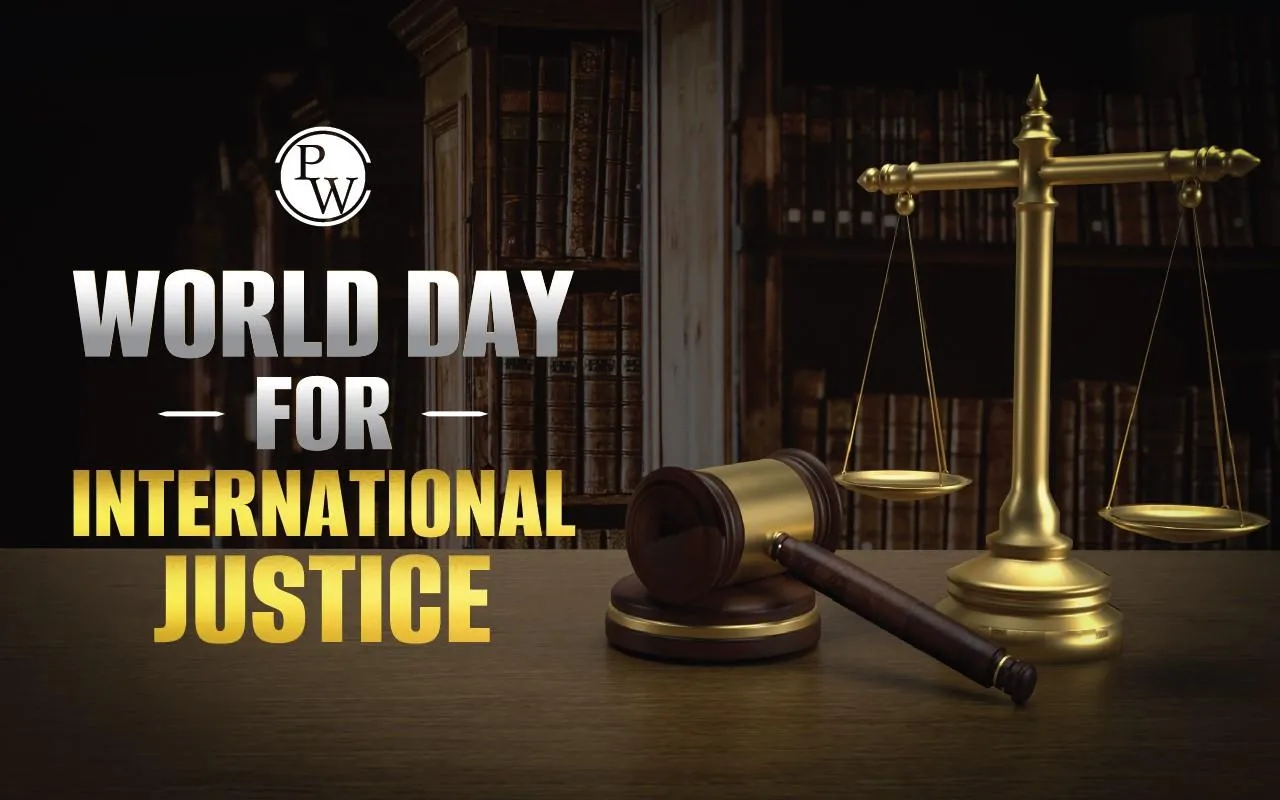
World Day for International Justice 2025 will be celebrated on July 17th. This date marks the anniversary of the adoption of the Rome Statute in 1998, the founding treaty of the International Criminal Court. As the world faces new threats such as cyber warfare and climate-related violence, the importance of international justice has only increased. World Day for International Justice 2025 will call global leaders to build a fairer future for all.
World Day for International Justice is observed every year on July 17. The day recognises the importance of holding those who commit serious crimes accountable under international law. It reminds the global community that justice plays a central role in achieving lasting peace and protecting human dignity.
Over the years, this day has grown into a platform where governments, civil society, and individuals reaffirm their commitment to ending impunity for war crimes, genocide, and crimes against humanity.
| World Day for International Justice 2025 Overview | |
| Date | July 17, 2025 (Thursday) |
| Significance | Commemorates the adoption of the Rome Statute on July 17, 1998, which established the ICC |
| Purpose | Promote international criminal justice, support ICC's role, fight impunity for serious crimes |
| History | 1998: Rome Statute adopted; 2002: ICC began functioning; 2010: Day officially declared |
| 2025 Theme | Not officially announced |
| Main Organizer | International Criminal Court (ICC), headquartered in The Hague, Netherlands |
| Global Participation | Supported by over 120 State Parties to the Rome Statute |
| How to Participate | Raise awareness, support human rights organizations, engage in educational activities, advocate for justice mechanisms |
| Impact Areas | Legal accountability, victim recognition, public awareness, and international cooperation |
The theme for World Day for International Justice 2025 has yet to be announced. Every year, a theme is chosen to highlight the need for nations to stand together in the face of evolving global challenges. It calls for shared responsibility to uphold international law, support victims of crimes, and create mechanisms to ensure justice for all.
In today’s interconnected world, crimes committed in one part of the globe can have ripple effects elsewhere. Whether it's war crimes, environmental harm, or cyberattacks, justice cannot be confined by borders. The World Day for International Justice 2025 campaign encourages collective action and cooperation across countries, communities, and institutions.
The roots of a dedicated International Justice Day trace back to 17 July 1998, when representatives from over 100 countries came together to adopt the Rome Statute. This treaty led to the creation of the International Criminal Court (ICC), the world’s first permanent court dedicated to prosecuting serious international crimes.
In 2010, during a review conference held in Kampala, Uganda, it was decided to commemorate this day as World Day for International Justice. The aim was to highlight the importance of international criminal justice and promote awareness about the ICC and its objectives. Since its inception, the day celebrates the journey of the ICC and urges continued global efforts toward justice and peace.
The International Criminal Court (ICC) began functioning on 1 July 2002, based in The Hague, Netherlands. Unlike national courts, the ICC has jurisdiction over crimes that are considered a threat to the international community, namely, genocide, war crimes, crimes against humanity, and the crime of aggression.
One key principle of the ICC is complementarity, which means the Court intervenes only when national courts are unable or unwilling to prosecute.
ICC ensures that justice starts at the local level, but there is a safety net if those systems fail.
The ICC also offers protection and support to victims and witnesses.
It ensures fair trials, legal representation, and psychological help where needed.
| Established | 2002 |
| Headquarters | The Hague, Netherlands |
| Number of Member States | 125 (as of Jan 2025) |
| President | Nawaf Salam (Lebanon) |
| Founding Treaty | Rome Statute |
| Jurisdiction | Individuals accused of the crime of genocide, war crimes, crimes against humanity, and the crime of aggression |
| Key Function | Prosecute individuals for serious international crimes |
Over the years, it has investigated crimes in countries like Sudan, Libya, Uganda, and the Democratic Republic of the Congo. It should be noted that India is not a member of the ICC.
World Day for International Justice is a reminder that justice is essential for healing, peace, and the prevention of future crimes. In 2025, as the world navigates complex threats, this observance serves several key purposes:
Honouring Victims: It offers a voice to survivors of war crimes, genocide, and mass violence. Justice helps them rebuild their lives and regain dignity.
Raising Awareness: The day educates the public about international justice systems, especially the role of the ICC.
Promoting Rule of Law: It encourages countries to strengthen their legal systems and work together to fight impunity.
Engaging the Youth: Schools and universities hold debates, mock trials, and educational programs. This inspires young people to value fairness, law, and human rights.
Addressing New Challenges: Crimes committed through technology, environmental destruction, and artificial intelligence need new legal frameworks. The 2025 observance will call attention to these emerging issues.
In summary, World Day for International Justice 2025 is not just a remembrance. It is a call to act, to support the victims, and to defend the principles of fairness and truth. In a world full of challenges, justice is our shared responsibility.
Want to be updated on global affairs, law, and governance? Explore PW UPSC Courses to kickstart your preparation!
